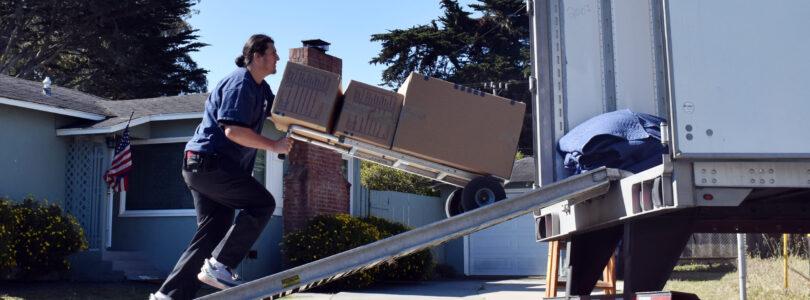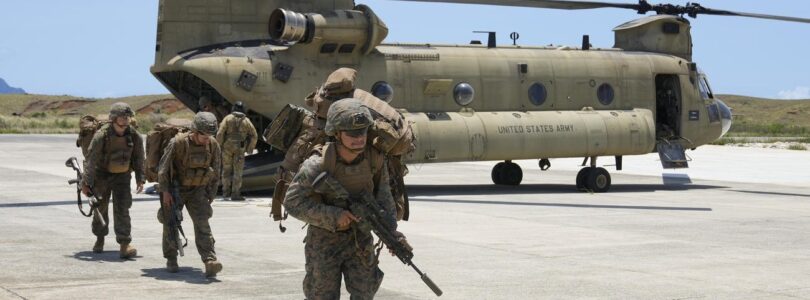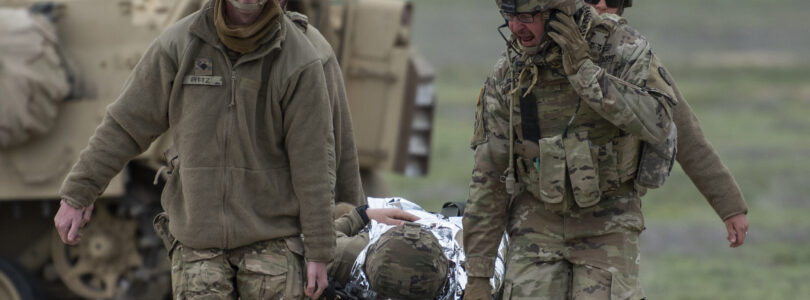News
Military families get another extension to ease Tricare West problems
Military families enrolled in Tricare Prime in the West Region have an extra two months, through June 30, to get specialty care without having to get approval from the contractor, TriWest Healthcare Alliance. It’s the second time Defense Health Agency officials have extended their referral approval waiver, which was first announced in late January. The waiver is a move to help ease the problems fa...[Read More]
Military families see bumpy start to household goods moving program
About 1,000 military families have experienced missed pickup or delivery dates, communications issues or other problems with the new contractor tasked with overhauling the system for moving service members’ household goods. That’s about 20% of the 5,195 relocation orders for shipments sent to the contractor, HomeSafe Alliance, since last April, when U.S. Transportation Command began slowly phasing...[Read More]
Military families see bumpy start to household goods moving program
About 1,000 military families have experienced missed pickup or delivery dates, communications issues or other problems with the new contractor tasked with overhauling the system for moving service members’ household goods. That’s about 20% of the 5,195 relocation orders for shipments sent to the contractor, HomeSafe Alliance, since last April, when U.S. Transportation Command began slowly phasing...[Read More]
Military families see bumpy start to household goods moving program
About 1,000 military families have experienced missed pickup or delivery dates, communications issues or other problems with the new contractor tasked with overhauling the system for moving service members’ household goods. That’s about 20% of the 5,195 relocation orders for shipments sent to the contractor, HomeSafe Alliance, since last April, when U.S. Transportation Command began slowly phasing...[Read More]
Military families to see drop in Tricare dental premiums
Military families will soon see their monthly Tricare dental premiums drop by a few dollars as the new Tricare Dental Program contract takes effect, with some active-duty families seeing their premiums drop by nearly one-third. While many beneficiaries will see a small decrease in their premiums, the biggest changes affect active-duty families and certain Reserve members and their families in pay ...[Read More]
Military families to see drop in Tricare dental premiums
Military families will soon see their monthly Tricare dental premiums drop by a few dollars as the new Tricare Dental Program contract takes effect, with some active-duty families seeing their premiums drop by nearly one-third. While many beneficiaries will see a small decrease in their premiums, the biggest changes affect active-duty families and certain Reserve members and their families in pay ...[Read More]
Military families to see slight drop in Tricare dental premiums
Tricare dental premiums will decrease slightly for the next four months, bringing modest savings for military families at a time when some are feeling the squeeze of rising consumer costs. The new monthly premiums, effective Nov. 1 to Feb. 28, 2025, vary based on the sponsor’s status and the enrollment type, with reductions ranging from $0.26 to $3 a month. Active duty family members, National Gua...[Read More]
Military families: Tell us about your household goods move
Have you moved to a new duty station within the last year, or are you in the process of a permanent change of station move? Tell us how your household goods shipment went — or how it’s going. U.S. Transportation Command is in the process of transitioning to a new system for managing the shipment of troops’ personal belongings. We want to hear from you, whether you were assigned to the new system m...[Read More]
Military kids deserve to stay on their parents’ Tricare plan until 26
Every person who chooses to serve in the United States military has a different and unique experience. Recognizing this individuality, we as elected officials try to smooth out the highs and lows that impact veterans and service members and assess the potential unintended consequences of our legislative initiatives. It’s these “unintended consequences” that have become a recurring theme of the Vet...[Read More]
Military Leaders Strengthen Indo-Pacific Partnerships During Guam, Hawaii Visit
WASHINGTON – Acting Under Secretary of the Navy (UNSECNAV) Tom Mancinelli and the Acting Deputy Under Secretary of Defense for Acquisition and Sustainment (DUSN(A&S)) Deborah Rosenblum traveled to Guam and Hawaii, Oct. 13-18, to meet with government officials, military leaders, and service members assigned to the Indo-Pacific area of responsibility.
Military Leaders Warn of Risks to Armed Forces’ Readiness in Temporary Funding Bill
The vice chiefs of the Army, Navy, Marine Corps and Air Force said that if they don’t get additional funding, they at least need the flexibility to shift money to ensure priorities are covered.
Military medical system unprepared for future conflict, experts say
When it comes to combat casualty care, “without urgent intervention, the Military Health System will continue to slide into medical obsolescence,” a retired Air Force trauma surgeon told senators Tuesday. The consequence of a military medical system that’s unprepared to handle a high volume of casualties in any future major conflict is that “many will have survivable injuries, yet one in four will...[Read More]


















